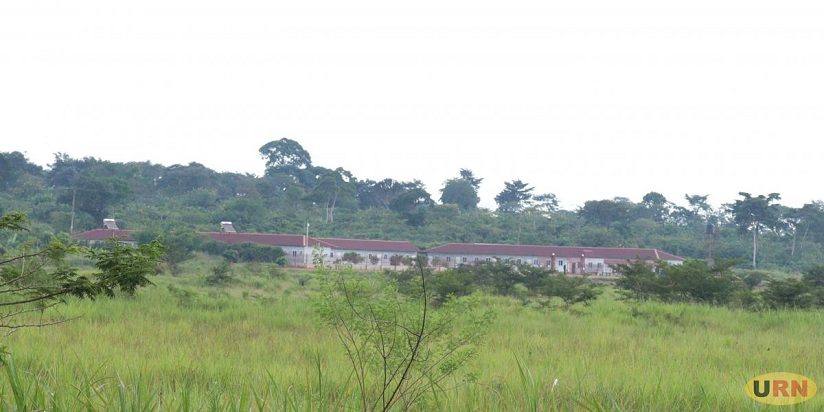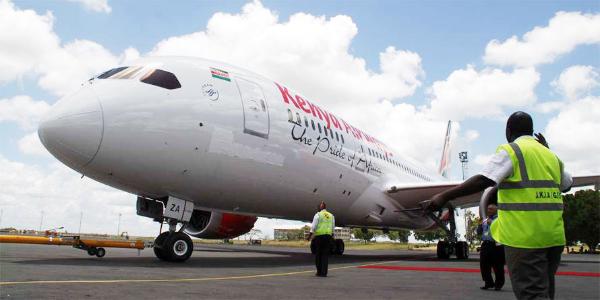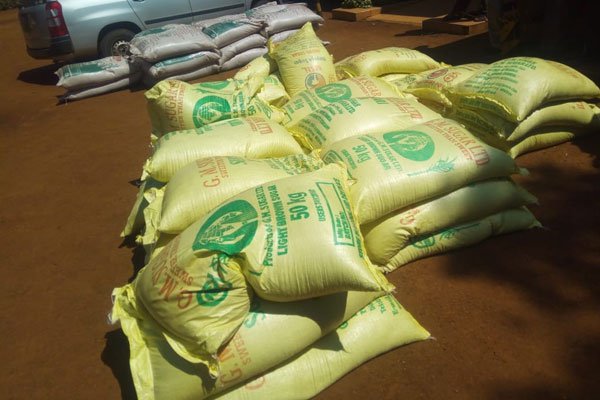An Agricultural Industrial Park established by Chinese firm, Kehong Uganda Industrial Development Limited in Luwero district is struggling to take off five years after its launch. In 2016, President Yoweri Museveni launched the Agricultural Industrial park project in Lubenge wetland in Luwero district, saying it was key in transforming the economy.
Kehong Uganda Industrial Development Limited secured a 99-year lease for the 383.092 hectares of Lubenge wetland, which connects Luweero to Nakasongola district along Kampala-Gulu highway. During the ground-breaking ceremony in Ndibulungi village, Luo Hong, the President of Kehong Uganda Industrial Development Limited said the company would inject US$ 220 million (over Shillings 748 billion) into the project and recruit more than 25, 000 workers.
He promised to develop an integrated Agricultural Park comprising rice, poultry and livestock farms. He also said the park would include processing plants and provide training for modern agricultural technologies among other services. However, five years after the launch there is no activity and the biggest part of the land has been colonized by tall grass.
John Wasswa, the LC 1 Chairman of Ndibulungi village in Butuntumula sub-county, says that they were happy over the launch of the multi-billion Shillings project and about 80 residents including him applied for work to earn a living. Wasswa says that in two years the wage declined from Shillings 10,000 to Shillings 6000, which chased away most of the residents.
Wasswa says that the company also scale down operations and there is nothing much apart from the small-scale rice farming. He says that the company had also extended piped water services to the community after fencing off the community well but has since disconnected supply. Wasswa says that a week ago he visited the facility and found empty poultry cages erected to rear 100,000 chickens.
Luwero District Agricultural officers say that the Chinese never involved them in the project and preferred to use agronomists from China who failed to appreciate the local climate. The Chinese wanted to plant hybrid rice as well as Foxtail millet rather than New Rice for Africa varieties, which are locally grown in Uganda.
Dr. Kidda Makubuya the Luwero District Production Officer, says that the Chinese told them that their activities were greatly affected by the COVID-19 pandemic. When URN visited the Industrial Park on Monday, a policeman guarding the facility blocked him from accessing it, saying that it is restricted because of the COVID-19 Pandemic.
Erastus Kibirango, the LC 5 Chairman of Luwero district, says that when he gained access to the park recently, he was equally concerned after seeing agricultural machinery rotting away.
Richard Kibuuka, the Human Resource Manager of Kehong Uganda Industrial Development Limited told URN on the phone that the rice project was affected by insufficient water supply to sustain the gardens. Kibuuka says that the poultry farm was not operational but they were in the process of importing chicks.
Kibuuka explained that in June this year they met with stakeholders including Officers from the Ministry of Agriculture, Food and Agricultural Organization and District Staff to discuss how to revive the rice project. URN has learnt that the company has sought funding under the Uganda South-South Cooperation project phase three, which is implemented by the Ministry of Agriculture in collaboration with FAO.
This raises questions whether the company indeed had the US$ 220 million, which they promised to invest in the project in 2016. Hanhe (Uganda) Farm, which is a subsidiary of Hanhe International Company and launched its operations in 2011 after securing a lease for 400 acres of land in Kasangombe Sub County in Nakaseke also abandoned it a few years later. The land is now covered with shrubs prompting residents to graze there their animals.
-URN





